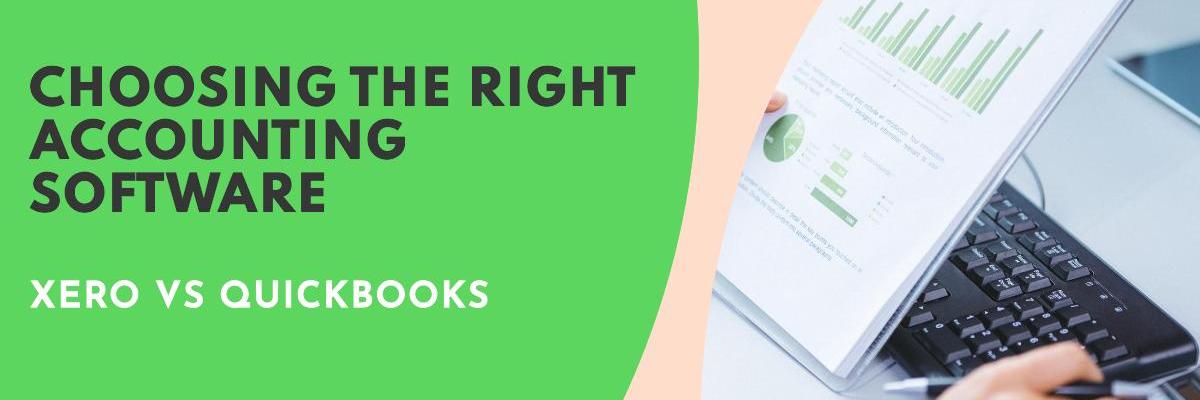In small and medium-sized business accounting, the battle for supremacy between Xero and QuickBooks accounting software is a perennial affair. These two stalwarts have emerged as the go-to choices for businesses seeking efficient and user-friendly accounting solutions. Both Xero and QuickBooks offer a plethora of features aimed at simplifying financial management, but each has its unique strengths and weaknesses. Understanding the nuances of Xero vs QuickBooks is paramount for entrepreneurs looking to streamline their financial processes and make informed decisions.
Differences Between Xero and QuickBooks:
| Criteria | Xero | QuickBooks |
| User Interface and Ease of Use | Clean, intuitive design suitable for beginners | Robust interface with a steeper learning curve |
| Accessibility and Collaboration | Cloud-based platform for anywhere, anytime access | Desktop and online versions with collaboration |
| Pricing Structure | Transparent, tiered pricing for scalability | Varied plans with different features |
| Automation and Bank Reconciliation | Advanced automation, seamless bank reconciliation | Proficient in automation, may not match Xero’s |
| Global Business Considerations | Global approach, multi-currency support | Multi-currency support, may not handle global complexities as well |
User Interface and Ease of Use:
Xero prides itself on a clean and intuitive interface, making it an excellent choice for users with little to no accounting background. QuickBooks, on the other hand, offers a slightly more robust interface, which may require a steeper learning curve. The streamlined design of Xero caters to businesses that value simplicity, while QuickBooks may be preferred by those looking for a comprehensive suite of features.
Accessibility and Collaboration:
Xero takes the lead in terms of accessibility with its cloud-based platform, enabling users to access their financial data from anywhere with an internet connection. QuickBooks offers both desktop and online versions, providing flexibility but with potential limitations in collaboration. Xero’s collaborative features make it ideal for businesses with remote teams or those looking for real-time collaboration with their accountants.
Pricing Structure:
The pricing models of Xero and QuickBooks differ significantly. Xero adopts a tiered pricing structure based on the scale of your business, while QuickBooks follows a more complex approach with different plans offering varying features. Xero’s transparent pricing is beneficial for businesses looking for a straightforward and scalable solution, while QuickBooks may appeal to those willing to navigate through multiple plans for tailored features.
Automation and Bank Reconciliation:
Xero boasts advanced automation features, particularly in bank reconciliation, making it a time-saving choice for businesses dealing with a high volume of transactions. QuickBooks, while proficient in automation, may not match the seamless bank reconciliation capabilities of Xero. For businesses aiming for efficiency and accuracy in financial transactions, Xero emerges as the preferred choice.
Global Business Considerations:
Xero has gained recognition for its global approach, providing multi-currency support and tax compliance features for businesses operating internationally. QuickBooks, while also offering multi-currency support, may not be as adept at catering to the unique regulatory requirements of various countries. Therefore, businesses with a global footprint may find Xero to be a more accommodating solution.
Ideal Choices for Different Business Types:
In the end, the choice between Xero and QuickBooks depends on the specific needs and nature of your business. Xero’s simplicity and accessibility make it an excellent fit for startups and small businesses with straightforward accounting requirements. QuickBooks, with its comprehensive feature set, may be better suited for larger enterprises with complex financial structures and a need for in-depth reporting capabilities. You can check out this article about which is the best choice between Xero and QuickBooks for more details.
Frequently Asked Questions:
- Is Xero suitable for a small business with minimal accounting knowledge? Absolutely. Xero’s user-friendly interface and intuitive design make it an ideal choice for small businesses with limited accounting expertise. The platform’s simplicity ensures that users can quickly adapt and manage their financial tasks efficiently.
- Does QuickBooks offer better reporting capabilities compared to Xero? QuickBooks is renowned for its robust reporting features, providing businesses with in-depth insights into their financial performance. If detailed reporting is a priority for your business, QuickBooks may be the preferred option.
- Can Xero handle the financial complexities of a large enterprise? While Xero is exceptionally well-suited for small to medium-sized businesses, its scalability and multi-currency support make it a viable option for larger enterprises with international operations. However, QuickBooks may offer more extensive features tailored to the complexities of larger organizations.
- Which software is more cost-effective in the long run? The cost-effectiveness of Xero vs QuickBooks depends on the specific needs of your business. Xero’s transparent pricing and scalable plans can be advantageous for businesses looking for a straightforward and adaptable solution, while QuickBooks may offer more value for enterprises requiring advanced features included in higher-tier plans.
- Does Xero or QuickBooks integrate better with third-party applications? Both Xero and QuickBooks have a wide range of integrations with third-party applications. However, the seamless integration of Xero with various business tools and apps is often lauded, making it an attractive option for businesses aiming to create a cohesive and integrated digital ecosystem.
Conclusion:
In the dynamic landscape of business accounting, the choice between Xero and QuickBooks is a pivotal decision that can significantly impact the efficiency of financial processes. Understanding the unique features and strengths of each platform is crucial for making an informed decision. Whether you opt for the simplicity of Xero or the comprehensive capabilities of QuickBooks, both platforms have proven themselves to be reliable companions on the journey toward financial success. Ultimately, the ideal choice hinges on the specific requirements and aspirations of your business, guiding you toward a seamless and productive financial management experience.
Learn more:
How to do Bookkeeping on Xero?
